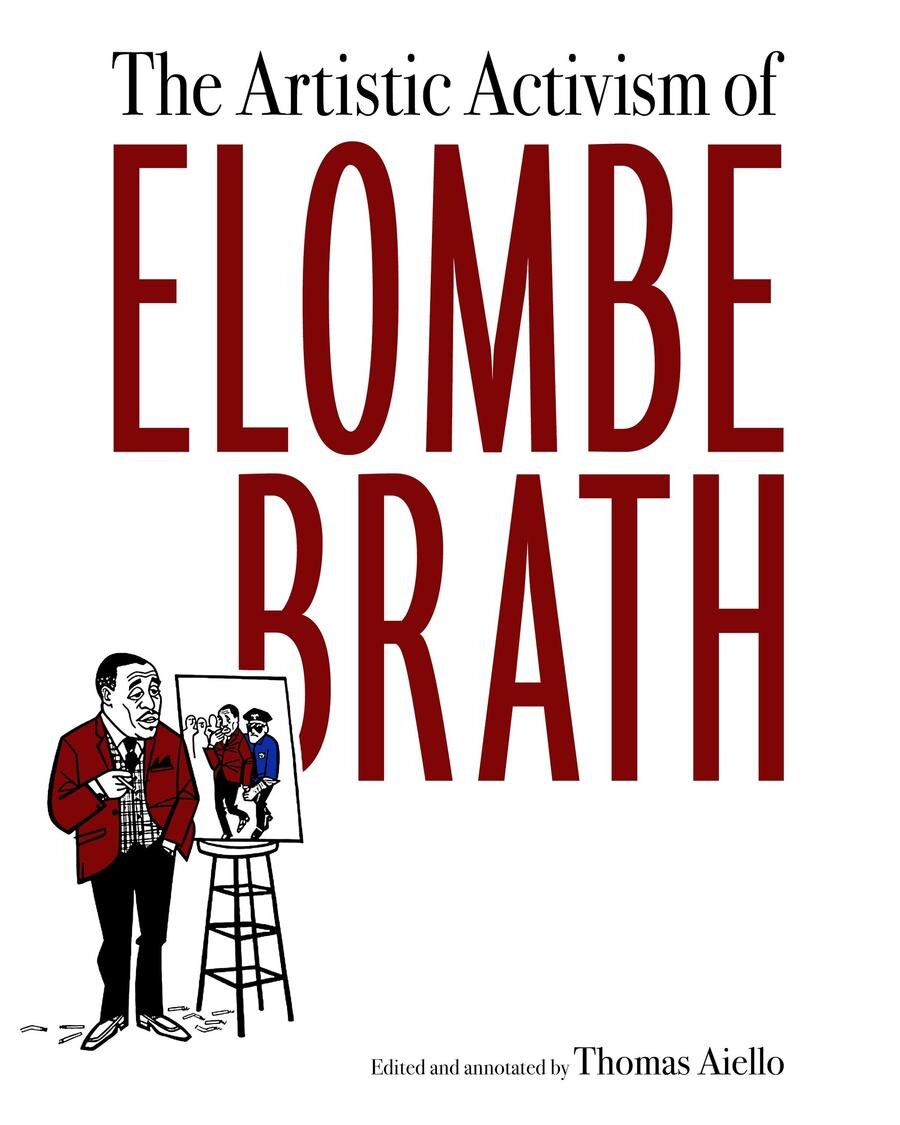Here is a great video of Brath’s son (and head of the Elombe Brath Foundation) discussing his father’s life and legacy. A portion of the book’s proceeds will go to the Elombe Brath Foundation. Cinque and his team have been inordinately helpful in putting this project together.
THE ARTISTIC ACTIVISM OF ELOMBE BRATH
In 1963, at the height of the southern civil rights movement, Cecil Brathwaite (1936–2014), under the pseudonym Cecil Elombe Brath, published a satire of Black leaders entitled Color Us Cullud! The American Negro Leadership Official Coloring Book. The book pillories a variety of Black leaders—from political figures like Adam Clayton Powell and Whitney Young to civil rights activists like Martin Luther King, Bayard Rustin, and John Lewis, and even entertainers like Sammy Davis Jr. , Lena Horne, and Dick Gregory—critiquing the inauthenticity of movement leaders while urging a more radical approach to Black activism. Despite the strong illustrations and unique commentary presented in the coloring book, it has virtually disappeared from histories of the movement.
The Artistic Activism of Elombe Brath restores the coloring book and its creator to a place of prominence in the historiography of the Black left. It begins with an analysis of Brath’s influences, describing his life and work including his development as a Black nationalist thinker and Black satirist. The volume includes Brath’s early works—illustrations for DownBeat magazine and Beat Jokes, Bop Humor, & Cool Cartoons—as well as the full run of his comic strip “Congressman Carter and Beat Nick Jackson” from the New York Citizen-Call and a complete edition of Color Us Cullud! itself. These illustrations are followed by annotations that frame and contextualize each of the coloring book’s entries. The book closes with selections from Brath’s art and political thinking via archival material and samples of his written work. Ultimately, this volume captures and restores a unique perspective on the civil rights movement often omitted from the historiography but vital to understanding its full scope.
COMING IN OCTOBER!
"The Artistic Activism of Elombe Brath highlights an important Black perspective on the 1960s—one that has been forgotten or intentionally overlooked. The narrative that Martin Luther King Jr. and other civil rights actors were somehow universally loved in the African American community has only recently been replaced by the idea that King and other activists were somehow universally loved by Americans in general. This volume troubles both of those narratives and adds important texture to the turbulent decade. "
- Jonathan Fenderson, author of Building the Black Arts Movement: Hoyt Fuller and the Cultural Politics of the 1960s
